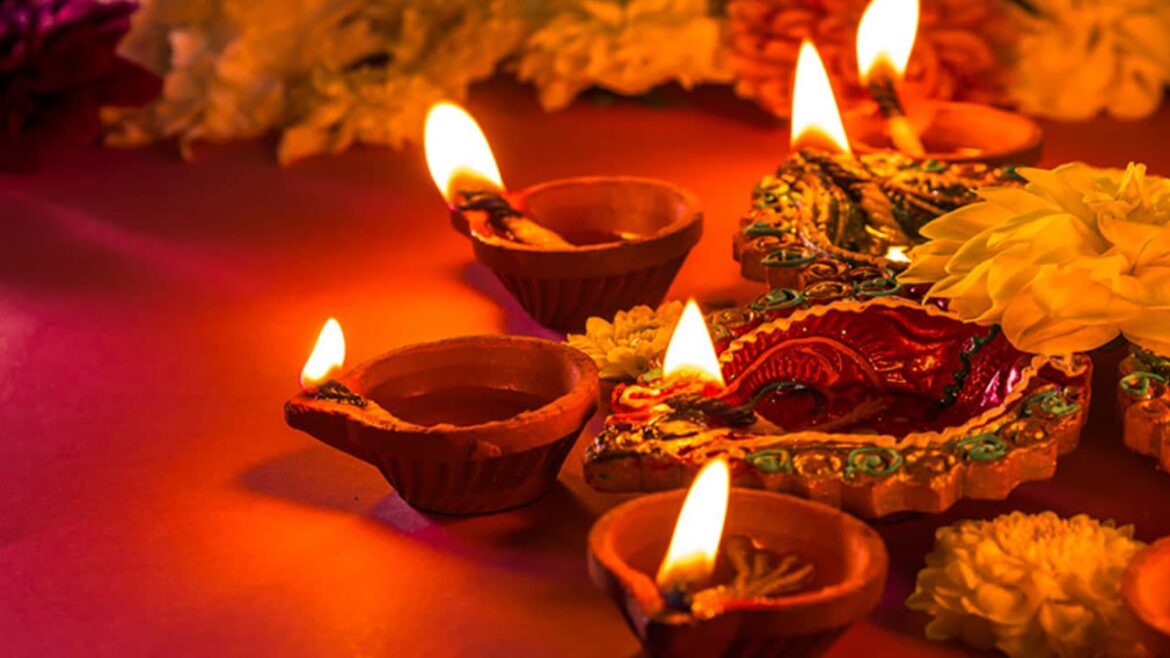Diwali, also known as Deepawali, is celebrated with exuberance and fervor across India and various parts of the world where the Indian diaspora resides. This vibrant festival, characterized by its myriad lights and intricate rituals, offers rich opportunities for cross-cultural understanding. For those who approach this celebration from a Christian perspective, it is essential to delve deeper into the significance of this festival beyond its surface festivities, fostering a nuanced appreciation of its spiritual and ethical dimensions.
At its core, Diwali represents the triumph of light over darkness and good over evil, a theme that resonates profoundly within Christian theology. The symbolic illumination found in the festival is reminiscent of Christ as the Light of the World, fostering an understanding of how both faiths celebrate the victory of righteousness. This parallel invites individuals to consider the transformative power of light in their own lives – illuminating the path toward compassion, justice, and hope.
During Diwali, homes are adorned with diyas (oil lamps) and rangolis (colorful patterns made from powder), creating a luminescent canvas that signifies the dispelling of ignorance and the welcoming of knowledge. In Christianity, light often serves as a metaphor for divine truth and understanding. One could draw parallels between Diwali’s decorative illuminations and the Christian practice of celebrating the birth of Christ during Christmas, where decorations symbolize joy, hope, and renewal. Both festivals emphasize the values of community togetherness, such as family unity and altruism—universal tenets that transcend cultural barriers.
The festival spans five days, each with its own significance. The first day, Dhanteras, is dedicated to wealth and prosperity, where devotees worship the goddess Lakshmi, who embodies abundance and fortune. From a Christian viewpoint, this can be reconceptualized as a call to reflect on one’s blessings, reminding believers to acknowledge and utilize their own resources in responsible stewardship. This notion extends to the parable of the talents in Christian scripture, emphasizing the importance of nurturing what one has been given.
The second day, Choti Diwali, serves as a precursor to the main festivities. It marks a period of introspection, where individuals contemplate their past actions and seek to rectify any wrongs. In Christianity, the idea of repentance parallels this practice, encouraging believers to reflect on their journeys and to seek spiritual renewal. Such a mindset invites the faithful to consider how moments of self-reflection can ignite transformative change in one’s life.
The third day is celebrated as the main Diwali festival, where families gather to perform puja (worship) to honor the goddess Lakshmi. The act of worship underscores the importance placed on spiritual devotion within Hinduism. While Christians do not engage in this particular form of worship, they can appreciate the dedicated moments of prayer and thanksgiving in their own tradition. This serves to remind believers of the significance of gratitude and reverence, encouraged through prayers that align the heart with God’s purpose.
Another resonant theme during Diwali is that of sharing and generosity. It is customary to exchange sweets and gifts, fostering goodwill and establishing bonds among family and friends. This tradition finds its mirror in the Christian practice of charity, emphasizing the importance of loving one’s neighbor. Indeed, the emphasis on communal feasting resonates with the teachings of Christ, who encouraged generosity and selflessness. By reflecting on these shared values, Christians can find opportunities to cultivate fellowship through acts of kindness, reinforcing the fabric of community.
The fourth day, Govardhan Puja, honors the divine protection of Krishna. This day recalls the story of Krishna lifting the Govardhan Hill to protect the villagers from inclement weather—a tale that illustrates divine intervention and natural stewardship. Here, individuals can ponder the interconnectedness of faith and creation, nurturing a sense of responsibility toward the environment. Such reflections encourage sustainable practices, echoing the call of Christians to be caretakers of the Earth, thereby fulfilling their divine mandate.
Lastly, Bhai Dooj honors the bond between brothers and sisters, a poignant reminder of familial love and loyalty. This celebration underlines the importance of relationships in both communities, emphasizing love and commitment toward one’s family. In Christianity, the emphasis on love, as articulated in scripture, resonates through this practice, reinforcing the idea that love and support are paramount in all relationships. Observers are urged to embrace and nurture these connections as part of their faith journey.
In the grand tapestry of Diwali, it becomes evident that the bright lights serve as a metaphor for profound spiritual truths, promoting self-awareness, interconnectedness, and the essence of love. One can discern how the foundational themes of Diwali synergize with Christian beliefs, fostering an enriched dialogue between two rich traditions. By acknowledging these similarities and extending an appreciation for cultural differences, individuals may cultivate broader perspectives that unlock deeper spiritual meanings.
As the Festival of Lights draws closer, inviting exploration and engagement can prove cathartic. It promises not only an opportunity for cultural enrichment but also for personal transformation. In observing the lighting of lamps and the sharing of joy, one embarks on a journey that highlights the common threads woven through the fabric of human experience. Diwali, through this lens, is not merely a festival of a distant culture; it is a celebration of values that resonate universally, beckoning us toward love, unity, and enlightenment.



